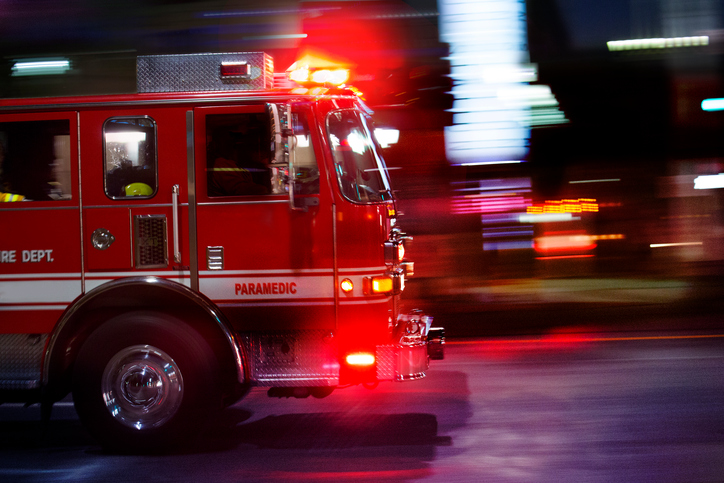 Government-owned fire trucks and police cruisers are common sights at accident scenes, but what happens when these vehicles – which frequently travel at high speeds – crash, causing serious personal injury and property damage? If you are in an accident with a fire truck, does California law offer remedies to seek financial restitution for your medical bills, lost wages and other losses?
Government-owned fire trucks and police cruisers are common sights at accident scenes, but what happens when these vehicles – which frequently travel at high speeds – crash, causing serious personal injury and property damage? If you are in an accident with a fire truck, does California law offer remedies to seek financial restitution for your medical bills, lost wages and other losses?
Pursuing a legal claim in a fire truck accident is essentially suing the government—either the city, municipality or county. Prevailing in such a claim can be challenging without the aid of an experienced attorney who is well-versed in the protections afforded by sovereign immunity, also known as governmental immunity.
Sovereign immunity is based on an ancient doctrine designed to protect the government and its agencies from being sued without its consent. In other words, the California government must grant the victim permission to file a lawsuit against the driver of the vehicle.
Doctrine of Sovereign Immunity
The doctrine of sovereign immunity has been in practice in the United States for hundreds of years. Under this principle, governmental entities, agencies and their employees are protected from tortious liability, allowing them to continue their duties without fear or threat of draining litigation.
Over the years, California lawmakers have put limits on the state’s reliance on sovereign immunity to avoid paying damages in civil claims arising from accidents where the state was responsible.
The California Legislature adopted the California Claims Act (CCA) in 1963, which oversees lawsuits brought against a state or federal public entity. The act was intended to offer the government with enough information to investigate claims, facilitate settlements of merit-worthy suits, and avoid similar liability in the future.
There are different rules that apply and steps that must be taken depending upon the governmental entity that is being sued. If the fire truck was owned and operated by the municipality, there are certain measures that must be taken to provide proper notice. In most cases, personal injury claims made against public entities in California must be filed within 6 months after the accident. The claims must be submitted in the proper format and contain requisite information to be processed.
The public entity then has up to 45 days to provide written notice of its intended action. The entity may accept the claim, reject it entirely or offer a compromise. If no written notice is provided to the plaintiff, they then have two years from the date of the accident to file a lawsuit.
A successful claim may seek compensation for a variety of losses including hospital and medical expenses, pain and suffering, loss of income, and benefits for wrongful death if the accident was fatal.
Los Angeles truck accident attorney
Governmental immunity cases in California are difficult but not impossible to pursue with the aid of experienced legal counsel. If you or a loved one were injured in an accident caused by an emergency first-responder, LA truck accident lawyer Sean Salamati can help you understand your rights to winning personal injury compensation. Call our office today to schedule a free, no-obligation case review.
Additional “Fire Truck Sovereign Immunity” Resources:
- Legal Dictionary, Sovereign Immunity http://legal-dictionary.thefreedictionary.com/Sovereign+Immunity
- California Law Revision Commission, Sovereign Immunity http://www.clrc.ca.gov/pub/Printed-Reports/Pub050.pdf
